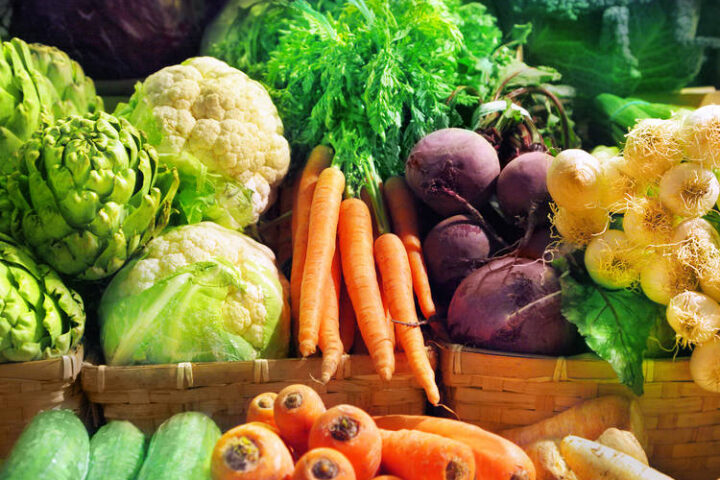IMARC Group, a leading market research company, has recently releases report titled “Europe Organic Food Market Report by Product Type (Organic Fruits and Vegetables, Organic Meat, Poultry and Dairy, Organic Processed Food, Organic Bread and Bakery, Organic Beverages, Organic Cereal and Food Grains, and Others), Distribution Channel (Supermarkets and Hypermarkets, Specialty Stores, Convenience Stores, Online Stores, and Others), Application (Bakery and Confectionery, Ready-to-eat Food Products, Breakfast Cereals, and Others), and Country 2024-2032”. The study provides a detailed analysis of the industry, including the Europe organic food market share, size, trends, and growth forecasts. The report also includes competitor and regional analysis and highlights the latest advancements in the market.
How Big is the Europe Organic Food Market?
The Europe organic food market size is projected to exhibit a growth rate (CAGR) of 10.1% during 2024-2032.
Request for a PDF sample of this report: https://www.imarcgroup.com/europe-organic-food-market/requestsample
Factors Affecting the Growth of the Europe Organic Food Industry:
-
Consumer Health Awareness:
The growth of the organic food market in Europe is significantly influenced by increasing consumer awareness about health and wellness. As European consumers become more informed about the impacts of food on health, there’s a notable shift towards organic products, which are perceived as healthier alternatives to conventional foods. This shift is driven by concerns over pesticides, chemicals, and genetically modified organisms (GMOs) in traditional agriculture. The growing incidence of health issues such as allergies and food intolerances has further fueled this trend. Moreover, the increasing awareness of the nutritional benefits of organic food, coupled with rising disposable incomes, allows more consumers to opt for these healthier options. The European media and health influencers play a pivotal role in educating and persuading consumers about the benefits of organic food, thus propelling market growth.
-
Government Policies and Regulations:
European government policies and regulations play a crucial role in the organic food market’s expansion. The European Union has established stringent regulations for organic farming and labeling, ensuring high standards of quality and sustainability. These regulations are designed to protect consumers, promote fair trade, and maintain the integrity of organic products. Subsidies and financial incentives for organic farmers have also been instrumental in encouraging the transition from conventional to organic farming. This governmental support helps mitigate the initial high costs and risks associated with organic farming. Furthermore, the EU’s aggressive promotion of environmental sustainability and reduction of carbon footprint aligns well with the principles of organic farming, making it an attractive investment for both new and established farmers.
-
Environmental Concerns and Sustainability:
The increasing emphasis on environmental protection and sustainability is another critical factor driving the growth of the organic food market in Europe. Organic farming practices are known for being environmentally friendly, promoting biodiversity, reducing pollution, and conserving water. This resonates with the growing European consumer base that is environmentally conscious and committed to reducing their carbon footprint. The demand for organic products is also bolstered by concerns about the long-term impacts of conventional farming on soil health and biodiversity. In addition, the European population is increasingly recognizing the role of sustainable farming practices in combating climate change. This environmental consciousness, coupled with the desire for sustainable living, is leading more consumers to choose organic products, thereby fueling the market’s growth.
Europe Organic Food Market Report Segmentation:
The report is organized into distinct sections as follows:
Product Type Insights:
- Organic Fruits and Vegetables
- Organic Meat, Poultry and Dairy
- Organic Processed Food
- Organic Bread and Bakery
- Organic Beverages
- Organic Cereal and Food Grains
- Others
By product type, the market is segmented into organic fruits and vegetables, meat, poultry and dairy, processed food, bread and bakery, beverages, cereal and food grains, and others.
Distribution Channel Insights:
- Supermarkets and Hypermarkets
- Specialty Stores
- Convenience Stores
- Online Stores
- Others
By distribution channel, the market is bifurcated into supermarkets and hypermarkets, specialty stores, convenience stores, online stores, and others.
Application Insights:
- Bakery and Confectionery
- Ready-to-eat Food Products
- Breakfast Cereals
- Others
By application, the market is categorized into bakery and confectionery, ready-to-eat food products, breakfast cereals, and others.
Country Insights:
- Germany
- France
- United Kingdom
- Italy
- Spain
- Others
Country wise, the market is divided into Germany, France, the United Kingdom, Italy, Spain, and others.
Europe Organic Food Market Trends:
The market growth of organic food in Europe is primarily driven by increasing consumer awareness about health and environmental issues. Europeans are becoming more conscious of the impact of their dietary choices on their health and the environment, leading to a heightened demand for organic products. This shift is fueled by concerns over pesticides, chemicals, and GMOs in conventional agriculture.
Additionally, government support and regulations in Europe promote organic farming practices, contributing to the market’s growth. The European Union’s stringent certification process for organic products ensures high standards, increasing consumer trust.
There’s also a growing trend towards sustainable and ethical consumption, where consumers are willing to pay a premium for products perceived as healthier and more environmentally friendly. This convergence of health consciousness, environmental concerns, and supportive regulations is propelling the organic food market in Europe.
Ask Analyst for Customization and Explore full report with TOC & List of Figures:
https://www.imarcgroup.com/request?type=report&id=8933&flag=C
Other Key Points Covered in the Report:
- COVID-19 Impact
- Porters Five Forces Analysis
- Value Chain Analysis
- Strategic Recommendations
If you need specific information that is not currently within the scope of the report, we will provide it to you as a part of the customization.
About Us:
IMARC Group is a leading market research company that offers management strategy and market research worldwide. We partner with clients in all sectors and regions to identify their highest-value opportunities, address their most critical challenges, and transform their businesses.
IMARC’s information products include major market, scientific, economic and technological developments for business leaders in pharmaceutical, industrial, and high technology organizations. Market forecasts and industry analysis for biotechnology, advanced materials, pharmaceuticals, food and beverage, travel and tourism, nanotechnology and novel processing methods are at the top of the company’s expertise.
Contact US:
IMARC Group
134 N 4th St. Brooklyn, NY 11249, USA
Email: sales@imarcgroup.com
Tel No:(D) +91 120 433 0800
United States: +1-631-791-1145 | United Kingdom: +44-753-713-2163

















